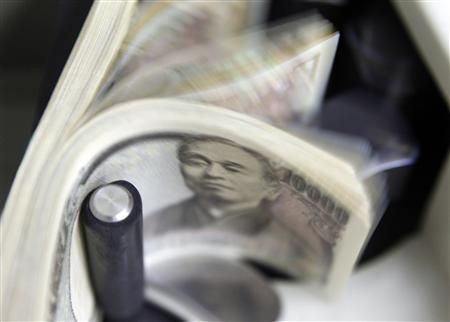Japan Core Machine Orders Decline 3.3% In August

Japan’s core machinery orders fell in August compared to that in the previous month showing that there is an urgent need to take additional measures for enhancing the growth potential of the economy.
According to the data released Thursday by the Cabinet Office, Japan’s core machinery orders declined 3.3 percent in August, down from 4.6 percent increase in July. The August core machine orders dropped 6.1 percent on an annual basis down from 1.7 percent increase in July.
This data come after it was reported by the Bank of Japan last week that the general business conditions in the manufacturing sector in Japan worsened in the quarter ending Sept. 30, indicating that the country’s economy continued to be affected by the weakening of exports due to the soft global demand. According to the data released by the central bank Monday, the Tankan large manufacturing index dropped to minus 3 in the quarter, down from minus 1 in the April-June quarter.
Also, the expiry of the eco-car subsidy for buying the low emission vehicles has affected the new vehicle sales. In addition, the relationship between China and Japan took a bad turn after Tokyo said in September that it would buy the East China Sea islands claimed by both countries. Market players are concerned that the dispute between the world's second and third largest economies could further weaken the global economic growth already affected by the euro zone crisis.
Last month, Japan reported a rise in trade deficit in August compared to that in July with a decrease in both exports and imports. The Finance Ministry data showed that the country recorded a 754.1-billion yen ($9.62 billion) trade deficit in August, up from 517.4 billion yen deficit in July. Exports dropped 5.8 percent to 5.05 trillion yen from a year earlier, indicating the weakening global demand. Imports fell 5.4 percent to 5.8 trillion yen showing the weak domestic demand.
Japan's economic growth slowed down in the April-June quarter compared to that in the first three months of the year, indicating that the country was losing growth momentum. Japan's economy grew at 0.3 percent in the second quarter, down from 1.2 percent in the first three months of the year.
“Japan’s economy appears to be heading toward a deep downturn as GDP almost certainly contracted in Q3 and growth in Q4 is likely to be anemic at best. With the global economy slowing and Japan’s fiscal and monetary policy arsenal all but empty, Japan’s economy looks to be on course for an extended slowdown,” David Rea, an economist at Capital Economics, said in a note.
© Copyright IBTimes 2025. All rights reserved.





















